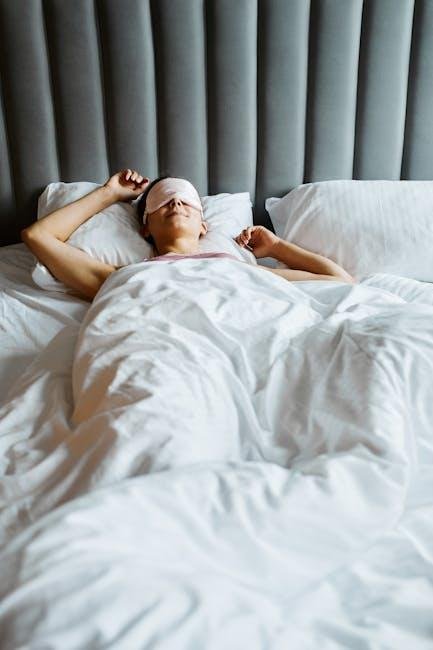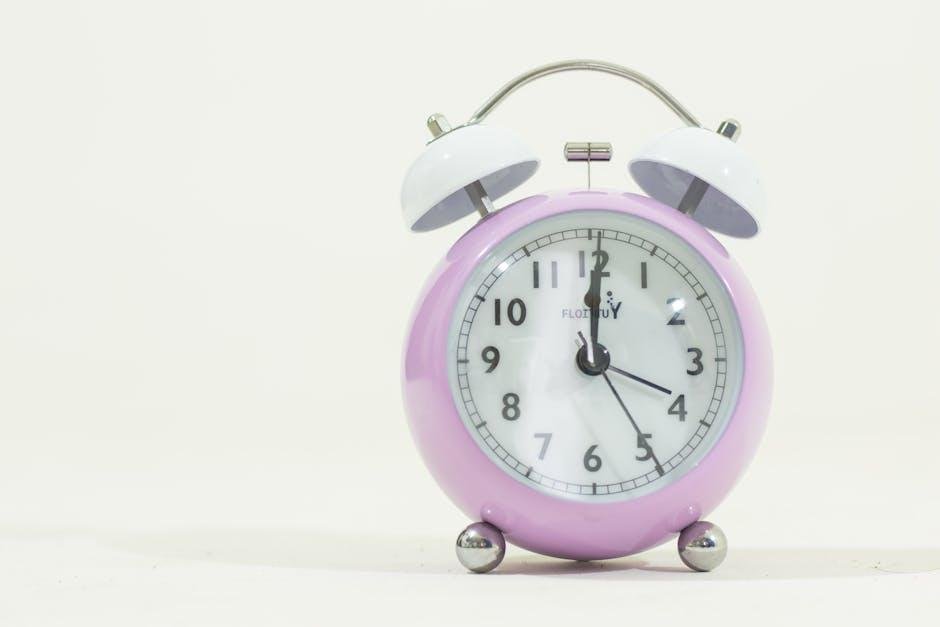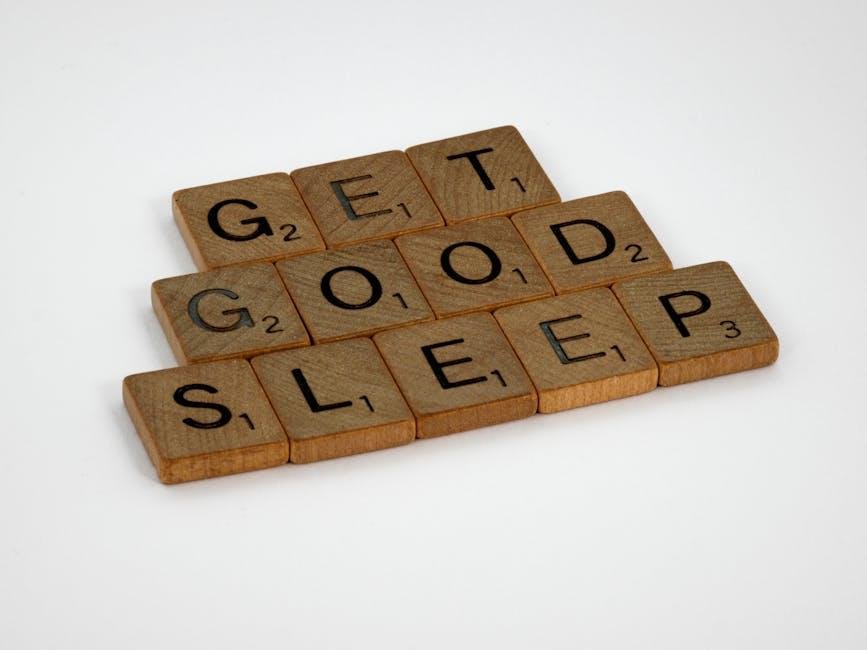In a world that never seems to slow down, sleep often takes a backseat to endless to-do lists, buzzing notifications, and the pursuit of more awake hours. But beneath the surface of our busy lives lies a fundamental question that has puzzled scientists and night owls alike: how much sleep do you really need? Far from a simple number, the answer weaves through the intricate tapestry of age, lifestyle, and individual biology. In this article, we’ll explore the science behind sleep requirements, debunk common myths, and help you find the sweet spot for your own nightly rest—because when it comes to sleep, one size does not fit all.
Table of Contents
- Understanding the Science Behind Sleep Needs
- Age and Lifestyle Factors That Influence Sleep Duration
- The Impact of Sleep Quality Versus Quantity
- Recognizing Signs of Sleep Deficiency in Your Daily Life
- Tailoring Your Sleep Schedule to Maximize Restfulness
- Practical Strategies for Achieving Optimal Sleep Every Night
- Q&A
- To Conclude

Understanding the Science Behind Sleep Needs
Sleep is not just a passive activity; it’s a complex biological process regulated by an internal clock known as the circadian rhythm. This rhythm controls when you feel sleepy and when you wake, influenced by environmental cues like light and darkness. Beyond this, your body’s need for sleep is also dictated by a homeostatic process, which increases your desire to sleep the longer you stay awake. This delicate balance between circadian rhythms and sleep pressure ensures that rest is timed perfectly to optimize brain function, memory consolidation, and overall health.
Different individuals require varying amounts of sleep due to genetic, age-related, and lifestyle factors. Here’s a quick glance at how recommended sleep duration changes across the lifespan:
| Age Group | Recommended Sleep |
|---|---|
| Newborns (0-3 months) | 14-17 hours |
| Children (6-12 years) | 9-12 hours |
| Adults (18-64 years) | 7-9 hours |
| Older Adults (65+ years) | 7-8 hours |
- Genetics: Some people naturally thrive on less sleep without negative effects.
- Health Conditions: Illness or stress can temporarily increase sleep needs.
- Lifestyle: Physical activity level and mental workload impact your ideal rest time.

Age and Lifestyle Factors That Influence Sleep Duration
Our sleep needs aren’t one-size-fits-all; they evolve with age and are deeply shaped by how we live our daily lives. As we journey from infancy to adulthood, our bodies demand varying amounts of rest. For instance, newborns can sleep up to 17 hours a day, while most adults thrive on 7 to 9 hours. Beyond the years, lifestyle choices play a pivotal role in regulating how much shut-eye we need. Factors like stress levels, physical activity, and exposure to screens before bedtime can either shorten or extend the hours our brain craves for optimal function.
Consider these lifestyle influencers that tweak your sleep clock:
- Physical Activity: Regular exercise generally promotes deeper sleep, though intense workouts late at night might delay sleep onset.
- Dietary Habits: Caffeine and heavy meals close to bedtime can interfere with restful cycles.
- Screen Time: Blue light emitted from devices can suppress melatonin, the sleep hormone.
- Stress and Mental Health: Anxiety and hectic schedules can fragment sleep, increasing the need for recovery time.
| Age Group | Recommended Sleep Hours | Common Lifestyle Impact |
|---|---|---|
| Children (6-12 years) | 9-12 hours | School activities and screen time |
| Teens (13-18 years) | 8-10 hours | Irregular sleep schedules and social life |
| Adults (18-64 years) | 7-9 hours | Work stress and lifestyle choices |
| Seniors (65+ years) | 7-8 hours | Health conditions and napping habits |

The Impact of Sleep Quality Versus Quantity
Understanding the delicate balance between sleep quality and quantity is essential for truly reaping the restorative benefits of rest. While it might be tempting to think that logging more hours in bed automatically means better health, this isn’t always the case. Quality sleep—measured by how deeply and uninterruptedly you sleep—often has a more profound impact on cognitive function, mood, and physical recovery than simply the total time spent asleep. Factors like sleep cycles, time spent in REM and deep sleep stages, and minimizing disruptions serve as the unseen architects of a well-refreshed mind and body.
Consider these elements that influence the overall effectiveness of your sleep:
- Consistency: Going to bed and waking up at the same times daily strengthens your body’s internal clock.
- Environment: A dark, cool, and quiet room encourages uninterrupted rest.
- Sleep stages: Prioritizing periods of deep and REM sleep can improve memory and physical health.
| Factor | Sleep Quantity | Sleep Quality |
|---|---|---|
| Duration | 7-9 hours recommended | Irrelevant if fragmented |
| Restorative Effect | Moderate to high | Maximized through cycles |
| Daily Impact | Reduced tiredness | Sharper focus & mood |

Recognizing Signs of Sleep Deficiency in Your Daily Life
Feeling groggy despite a full night’s rest or experiencing frequent afternoon slumps could be more than just a temporary annoyance—they might be clear indicators of insufficient sleep. Often mistaken for stress or busy schedules, chronic sleep deficiency subtly erodes your mental sharpness and emotional equilibrium. Other telltale signs include:
- Persistent irritability or mood swings that impact relationships
- Difficulty concentrating during work or study
- Unexpectedly dozing off during calm or inactive moments
- Frequent headaches or unexplained physical tension
Tracking these warning signals can be easier when compared against your daily functions. Below is a simple guide to help you gauge how sleep deprivation affects your body’s performance across several domains:
| Function | Healthy Sleep | Sleep Deficiency Impact |
|---|---|---|
| Memory | Sharp & Retentive | Forgetfulness & Confusion |
| Emotions | Stable & Balanced | Heightened Anxiety & Mood Swings |
| Physical Energy | Consistent & Strong | Fatigue & Reduced Coordination |

Tailoring Your Sleep Schedule to Maximize Restfulness
Understanding your body’s unique rhythm is key to unlocking the door to truly restorative sleep. Rather than rigidly adhering to a generic “8 hours per night,” listen closely to how you feel during the day—are you alert, sluggish, or somewhere in between? This self-awareness can guide you in adjusting your bedtime and wake time to align with your natural circadian tendencies. Keep in mind that quality often trumps quantity, so optimizing your sleep environment and pre-sleep rituals can help you extract maximum benefit from the hours you do spend in bed.
Consider these pointers when designing your personal sleep blueprint:
- Consistency is king: Aim to go to bed and wake up at the same time every day, even on weekends.
- Wind down gradually: Create a calming pre-sleep routine—dim the lights, avoid screens, and practice relaxation techniques.
- Track and tweak: Use a sleep journal or app to monitor your patterns and adjust until you find what leaves you refreshed.
| Chronotype | Ideal Bedtime | Optimal Wake Time |
|---|---|---|
| Morning Lark | 9:30 PM | 5:30 AM |
| Intermediate | 10:30 PM | 6:30 AM |
| Night Owl | 12:00 AM | 8:00 AM |

Practical Strategies for Achieving Optimal Sleep Every Night
Unlocking the secret to consistently restful nights often begins by creating a sanctuary for sleep. Simple adjustments like dimming lights an hour before bed, turning off screens, and indulging in a calming bedtime ritual can work wonders. Prioritize a consistent sleep schedule — going to bed and waking up at the same time daily helps synchronize your body’s internal clock, making it easier to drift into deep, rejuvenating slumber.
Equally important is how you prepare your environment and mind. Incorporate these practical tips to enhance your nightly routine:
- Optimize bedroom temperature: Aim for 60-67°F (15-19°C) to support natural sleep cycles.
- Limit caffeine and heavy meals: Avoid them at least 4 hours before bedtime.
- Engage in gentle stretches or mindfulness meditation: These activities ease muscle tension and quiet the mind.
- Use blackout curtains: Eliminate light interruptions to maintain deep sleep phases.
| Strategy | Benefit |
|---|---|
| Consistent schedule | Enhances circadian rhythm stability |
| Cool room temperature | Promotes deeper sleep stages |
| Screen blackout before bed | Reduces melatonin suppression |
| Mindfulness practice | Lowers stress and anxiety levels |
Q&A
Q: How much sleep do you really need each night?
A: While the classic recommendation is 7 to 9 hours for most adults, the exact amount varies depending on age, lifestyle, and individual biology. Some people thrive on 7 hours, others might need closer to 9 to feel fully rested.
Q: Why can’t I just function well on less sleep?
A: Shortchanging your sleep may seem manageable, but your brain and body quietly suffer. Chronic sleep deprivation can impair memory, mood, immune function, and even increase risk of chronic diseases, all without an immediate “tired” warning.
Q: How do I know if I’m getting enough sleep?
A: The simplest test is your wake-up time: if you naturally rise without an alarm and feel alert throughout the day, you’re likely hitting your sweet spot. If you find yourself reaching for caffeine, dozing in meetings, or feeling irritable, you may need more rest.
Q: Do different ages require different amounts of sleep?
A: Absolutely! Newborns need 14–17 hours; teenagers about 8–10; adults 7–9; and older adults often find 7–8 hours sufficient. Sleep needs shift with developmental stages, reflecting changing brain and body demands.
Q: Can “catching up” on sleep during weekends fix weekday deficits?
A: Catching up helps, but it’s no substitute for consistent nightly rest. Irregular sleep patterns can disrupt your internal clock, making you feel groggier overall. Aim for steady sleep schedules to maximize benefits.
Q: Is it possible to get too much sleep?
A: Yes, oversleeping can sometimes indicate underlying health issues and has been linked with increased risks for certain illnesses. Balance is key—both too little and too much can be a sign of trouble.
Q: How can I improve my sleep quality?
A: Prioritize a relaxing bedtime routine, reduce screen time before bed, keep your bedroom cool and dark, and avoid caffeine or heavy meals late in the day. Quality matters just as much as quantity in achieving restorative sleep.
Q: What role does sleep play beyond just feeling rested?
A: Sleep is a superpower for your brain’s creativity, problem-solving, and emotional regulation. It also supports physical growth, repairs cells, balances hormones, and helps maintain metabolic health. So, sleep isn’t just downtime—it’s your body’s prime time for restoration.
To Conclude
In the end, the question of how much sleep you really need doesn’t have a one-size-fits-all answer—because your body is uniquely you. By tuning into your own rhythms and responding to what your mind and body tell you, you can find the sweet spot where rest fuels your best self. So, listen closely to those quiet hours of night—they might just hold the secret to your well-being. After all, sleep isn’t just a number; it’s your personal reset button, waiting to be pressed.















Leave feedback about this